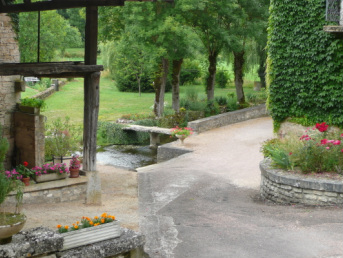The Global Environment

Fredosor.com
No longer ready
to absorb the anarchy of human development
Achieving environmental balance
By a good environmental balance is meant a balance where human use and extraction of resources from nature is such that it does not affect nature’s reproductive capacity.
By the use of nature is meant both cultivation, transformations produced by urbanisation, and other uses (including use for purposes of disposing of different types of refuse and emissions from human activity). By extraction is meant mining, petroleum extraction, fisheries and all other activities that extract resources from their natural environment.
The United Nations Environmental Programme (UNEP) gives a good overview of the different areas of relevance when we wish to assess the environmental challenges the world is faced with.
Research and statistical indicators that show the environmental state of the Earth are produced by institutions all over the world, and they are often in disagreement on what they see. This is being exploited politically by those who do not wish to impose any restrictions on economic activitiy, human consumption or other forms of human use of nature. The naked eye is capable of seeing that nature's resistance to human activity is weakening, be it related to climate change, biodiversity, reproductive capacity of plants and animals, or other forms of environmental observation. Nature itself is not impressed or concerned by human disagreement. It responds in ways it feels fit, regardless of human discourse.
By the use of nature is meant both cultivation, transformations produced by urbanisation, and other uses (including use for purposes of disposing of different types of refuse and emissions from human activity). By extraction is meant mining, petroleum extraction, fisheries and all other activities that extract resources from their natural environment.
The United Nations Environmental Programme (UNEP) gives a good overview of the different areas of relevance when we wish to assess the environmental challenges the world is faced with.
Research and statistical indicators that show the environmental state of the Earth are produced by institutions all over the world, and they are often in disagreement on what they see. This is being exploited politically by those who do not wish to impose any restrictions on economic activitiy, human consumption or other forms of human use of nature. The naked eye is capable of seeing that nature's resistance to human activity is weakening, be it related to climate change, biodiversity, reproductive capacity of plants and animals, or other forms of environmental observation. Nature itself is not impressed or concerned by human disagreement. It responds in ways it feels fit, regardless of human discourse.